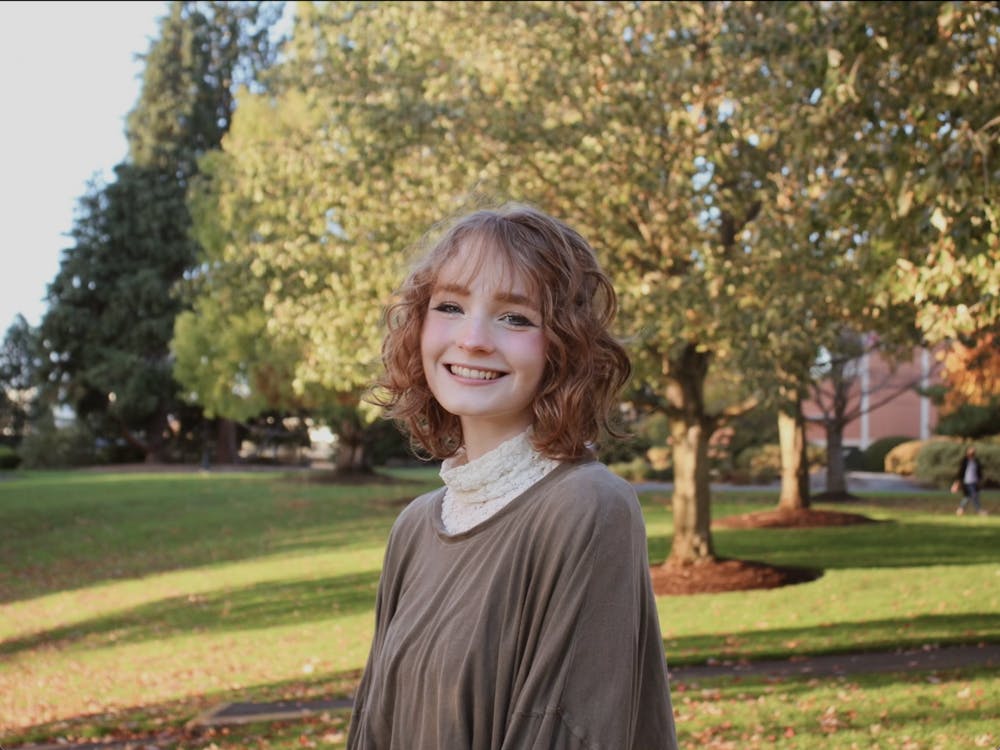Last Saturday night I saw the Colorado Symphony Orchestra perform Gustav Mahler’s 2nd Symphony. The epic piece ended with a booming finale, gongs clashing and sopranos spinning high B flats. The second the conductor lowered his baton, an audience member yelled “Bravo!,” the full concert hall jumped to their feet for a standing ovation, and I began to tear up.
I was thinking of how, just a week ago, I was bowing at the end of my senior recital — the end of my career as a music major and, most likely, my last ever solo performance. Last Saturday night, I watched the mezzo-soprano bow in her glittering gown, and I mourned. I graduate college in two short weeks, and though I’m excited for a future full of writing and editing (thanks to my English major), tonight I mourned my potential life as a professional musician.
But my music major hasn’t been for naught. So, as a thank you to the past four years of studying performance, theory, and everything else, here are four things that I learned from music that have made me a better person.
Shut up and listen.
At my recital, I performed Ned Rorem’s “Alleluia.” If you’re unfamiliar with the piece: it’s modern, barely tonal, and extremely rhythmically complex. And I messed it up. It’s one of those pieces where the singer and the piano seem to be performing two separate songs that have nothing to do with each other — neither is really helping the other. At the same time, Rorem (for some godforsaken reason) wrote the piece in 7/8. Everything is working against you in that piece, and I messed up, like, three entrances at my recital. Luckily, I think only my accompanist noticed — nobody knows what’s going on in that song even when it’s performed perfectly. But I was cursing myself afterwards.
A huge part of singing is the silence in between the actual singing: knowing when to shut up and listen. In solo singing, this looks like knowing your accompaniment back to front, having each interlude completely memorized so you never miss an entrance. In choral singing, it’s knowing your part well enough so that you can start to listen to the tenors or the basses and blend better. But no matter what, silence in music is almost of equal importance as the actual sound. Without the silence, the sound wouldn’t matter — it wouldn’t make a difference.
Throughout my four years here, UP students have never failed to surprise me in how they will show up to protest or take a stand against something. But much of what I have witnessed has been largely performative. I have watched students who I know to have engaged in hurtful and harmful behavior perform their Instagram-educated social justice behaviors and be praised for it. I have watched students hide behind anonymous instagram comments. I have watched white student activists stand silently by as their Black and brown peers continue to be ignored and pushed to the margins. I have watched students with a hammer and sickle in their twitter bio turn around and call downtown Portland dirty, sneer at tent cities, and go home to their cozy dorms.
Shutting up and listening is about being conscious of your community. Your voice has value — but there is a time and place for it. If, like me, you’re white and privileged in more ways than you can count, you must learn which conversations to partake in, and which ones to listen to, learning and waiting for your appropriate entrance.
Make mistakes boldly.
In choir, we have a rule: if you’ve made a mistake, raise your hand. You won’t get called on — it’s just to let everybody know that you made that mistake. As a freshman, I was terrified of this. What kind of sadistic director would impose this shame on their singers? But I understand now. The raised hand says this: I know that I messed that up, and I’m going to look at that part later on my own, so we don’t have to stop the entire song to fix it. The raised hand is accountability.
We have another rule: it’s better to mess up loudly than to wait quietly and timidly. Don’t know your notes in the next section? Make something up, but do it loudly. Don’t know that entrance? Come in forte anyways. Let the director know there’s something to fix, and then fix it.
Being in college is scary. I used to find myself tip-toeing around my peers, positive that everybody knows more than me, sure that I’m just going to make myself sound stupid if I try to interject. But then I realized that everybody’s doing that. Now, when I’m faced with a difficult situation and I don’t know what’s right, I ask. Now, when I find myself in a conversation that’s out of my depth, I let people know. “Hey, can you explain this to me? Can you tell me what’s right?” And, in those rare (ha) moments when I do say something stupid, and someone calls me out on it, I try not to jump to the defense like I used to. I listen instead, because there’s no other way to learn. Let yourself be wrong.
Forgive yourself first.
During my recital rehearsal, my brain must have exited my body for a moment because in the middle of a song, I decided to stop and start singing a different song instead. I got flustered and confused, and I looked at Susan McDaniel at the piano in a panic. She tried to get me back on track, but I was committed to the mistake and too embarrassed to move on. Luckily, the audience only consisted of two people: Dr. Nicole Hanig and Daniel Mobbs, two voice instructors. In that awkward silence that I was interpreting as “oh my God I’m the biggest idiot on earth and I’m gonna fail out of the music program and die” silence, they said something that stuck with me: when you make a mistake, you have to forgive yourself that very instant, or else you won’t be able to move on.
Forgiveness is tricky. It isn’t letting someone off the hook, like some might think. It’s admitting to something, and asking for grace. I have made so many mistakes in my life. Dumb stuff, like when I put a steamer on my body trying to get wrinkles out of a sweatshirt and gave myself a second degree burn, but also serious stuff, like friendships-lost-kinda-stuff. Forgiving yourself quickly after a mistake might sound bad, or impossible, but it’s necessary for two reasons: until you forgive yourself, you won’t have fully admitted to what did; and until you forgive yourself, you won’t let anybody else forgive you.
Slow down.
Okay, I’m cheating with this one. This is a lesson from my piano days. When I was little, I would sit at the piano and practice a bit of a song obsessively until I knew it inside and out. And then I would speed through it, challenging myself to go faster, convinced speed was the true sign of expertise. (And as soon as I got to the section that I didn’t know as well, everything would be all andante and clunky). My mom would be in my ear: “Slow down, slow down.”
I graduate in less than two weeks. As of right now, I have no idea what I’m going to do with my life. I don’t know where I’ll be living. I don’t know who I’ll be around. But I do know this: right now, I have some amazing friends, I have a home in a lovely city, and I have… finals. To my soon-to-be-grads: we’ll be okay. Slow down. Enjoy what you have now.
Sadie Wuertz is the Opinions and Faith Editor of The Beacon. She can be reached at wuertz22@up.edu.
Have something to say about this? We’re dedicated to publishing a wide variety of viewpoints, and we’d like to hear from you. Voice your opinion in The Beacon.








